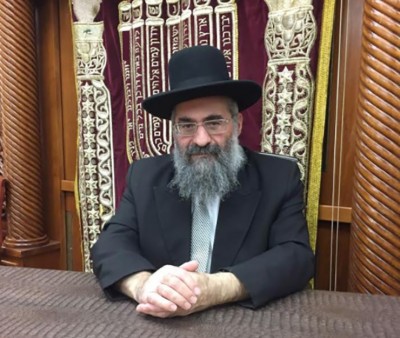
The Gemarah in Chagigah (5b) records an important occurrence. On the day when Rav Yehoshua ben Chananyah left this world, his students gathered around his bed to ask: “What will our people do without you? Who will be with us to take your place?” Rabbi Yehoshua was not only an exceptional talmid chacham, but also knew the art of rhetoric like no other. He was the primary defender against heretics who denied the Oral Torah, and would triumph over them in every debate. His students were therefore worried that they would not be able to find his equal after he passed away. Rabbi Yehoshua answered his students with a verse in Yirmiyahu: “If advice is lost from the children (the Jewish people), the [enemy’s] wisdom will deteriorate [as well].” As a people, we need to remember that Hashem always makes sure we have a way of overcoming the evil in creation. This is because Hashem made a world that is balanced, with the sides of evil and good remaining equivalent for the sake of free will.
Free will always exists, no matter how hard the challenge may be. But sometimes, we may not recognize evil for what it is, and then it bypasses our usual guard and does tremendous damage. The Torah tells how Yaakov prepared to meet his brother Esav after leaving Lavan’s house for the road back to Eretz Yisrael. At the time, he sent a message out to Esav, in an attempt to make peace with him. However, our sages point out that Yaakov also beseeched Hashem: “Save me from my brother, from Esav.” Why was Yaakov afraid of Esav? We know that Yaakov was a very powerful man, both physically and spiritually. He singlehandedly rolled a large boulder off a well, which would usually require the strength of many ordinary men. We also know that Hashem promised to protect him on his journey back home. So why was he afraid? Our sages tell us that Yaakov’s prayer was a supplication for his future offspring. He knew that there would come a time when his descendants would face a trickier Yetser Harah than ever before. This evil would change its disguise from an “enemy” to a “friend,” and Yaakov prayed that his children be protected from this evil. Whether evil comes as a brother, or as an adversary, the goal is the destruction of the Jewish soul.
Today, the Yetser Harah’s guise presents a “friendly” face. He comes with the promise of comfort and efficiency. Our technological advancement has the wonderful potential to solve so many of our problems, but it also carries a latent danger. Yaakov foresaw this danger, and asked Hashem to help his children face the challenge of our times. We live in a generation where it seems that the risk to our spirituality is greater than ever before. Our holy forefathers and predecessors may have faced their own challenges, but they usually experienced evil from without. Today however, evil penetrates the serenity of our homes and the minds of our children in the subtlest of ways. The misuse of technology and the confusion of our priorities have caused our nation so much unnecessary pain and heartbreak. How many families have fallen apart? How many children have lost their way?
Furthermore, the nature of the fall is unlike anything we ever faced before. The ease in which even a minor can access inappropriate material, whether it is visual, psychological, or intellectual, has presented us with incredible risk. In the most literal sense, today’s 15 minutes of sin can wipe out 15 or 20 years of hard work. A person can fall from great heights to the lowest depth, all within the time it takes to load a webpage or unlock a screen. However, we must recall the Gemarah mentioned above. Rabbi Yehoshua ben Chananyah’s message applies to us, too. We live in a generation where it is so easy to fall so low, and so it must be equally achievable for us to climb out from the depths and fly so very high. “Zeh Leumat Zeh Asah Haelokim” - Hashem made a world where we can choose between good and evil, equally. If we can perceive such incredible challenges, then we are also given the potential to actualize incredible states of Good.
The key is all in our will since “Ein Dvar Ha’omed Lifnei Ha’Ratzon” - nothing can stand in the way of someone’s sincere will. In many cases, Hashem gives us a chance to avoid the challenge. Everyone can put a filter on their smartphone or computer, even if they need it for business. A screen given to a child with no filter is like a spiritual bomb, a death wish. Children are unequipped to deal with the challenges they may face on an unfiltered phone or computer. The Gemarah in Avodah Zarah (3b) tells us that Hashem himself teaches children and leaves it to nobody else. Another Gemarah in Masechet Shabbat (119b) tells us that the world exists because of the breath of children, which carry words of Torah. We must avoid the risk of polluting our children’s pure minds in every way we can. We can stay vigilant and take proper precautions to ensure that we and our children remain wholesome and spiritually alive. May we all merit witnessing the true and final redemption, amen v’amen.
By Adam Suionov
Overcoming the Great Challenge of Our Generation
Typography
- Smaller Small Medium Big Bigger
- Default Helvetica Segoe Georgia Times
- Reading Mode











